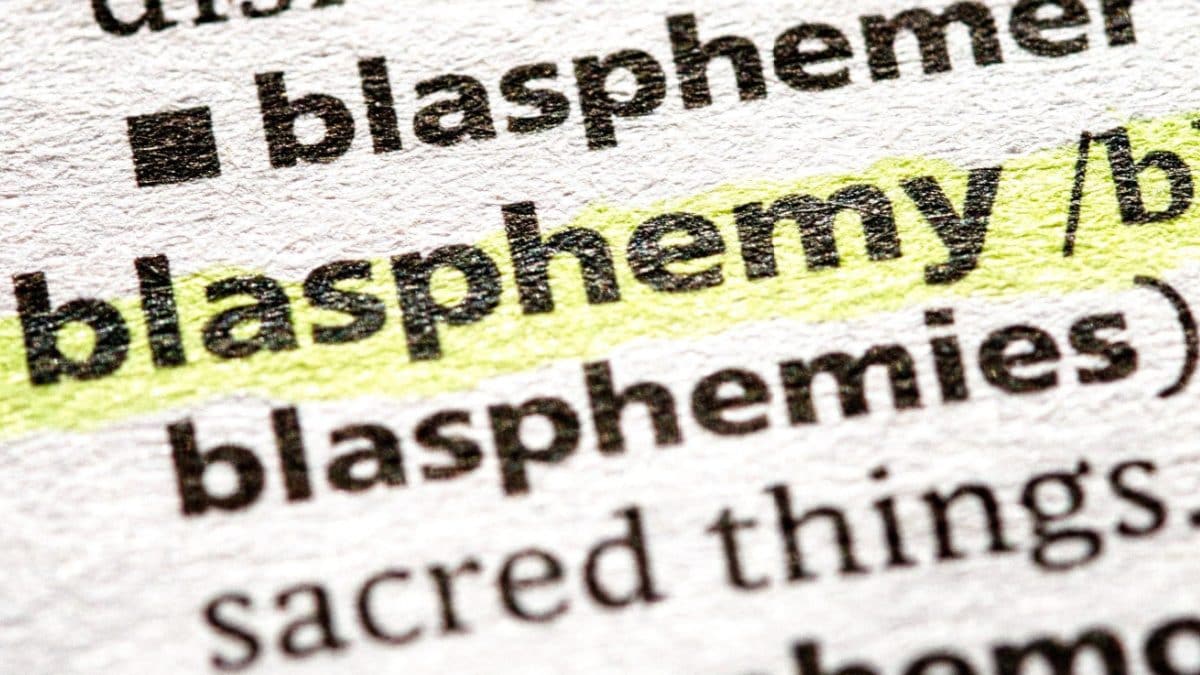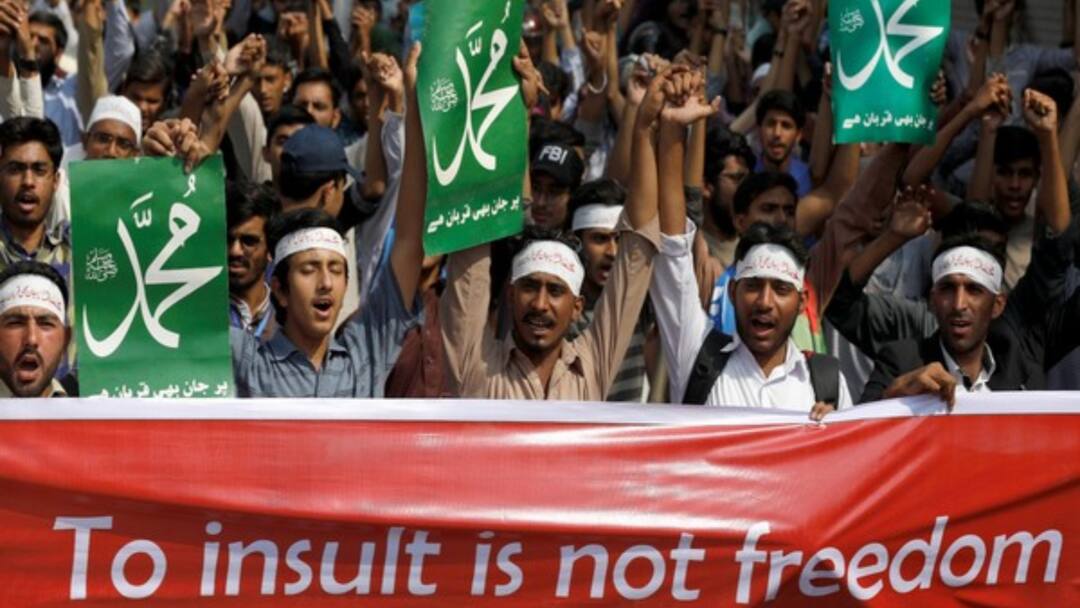- July 22, 2023
Pak Groups Quietly Force Blasphemy Laws on UK Citizens, Threaten Free Speech with Violence – News18

Pakistani and Bangladeshi groups are implementing blasphemy laws and unlawfully taking punitive measures against UK’s citizens who have the right to free speech and expression. (Image: Shutterstock)
A report highlighted incidents like the one in Wakefield where parents received death threats after their young autistic boy dropped the Quran from his hand.
Blasphemy is legal in Britain as the nation allows freedom of speech and expression subject to formalities, conditions, restrictions or penalties but highly-conservative Pakistani and Bangladeshi organisations are implementing tacit blasphemy laws in the UK.
A report by Henry Jackson Society warned that “extreme anti-blasphemy action” is emerging as a fresh threat to the UK’s liberal democratic system and also challenging its freedom of expression and religion. The report warns that there is a tacit blasphemy law operating in the UK.
Blasphemy laws were abolished in England and Wales in 2008 but a group of Pakistanis and Bangladeshis affiliated with the Tehreek-e-Labbaik Pakistan (TLP) and Khatme Nabuwwat movement along with few others are ready to resort to violence to defend their religion.
In Pakistan, and several other Islamic nation, blasphemy is punishable by death and Pakistanis as well as foreigners have been lynched for allegedly participating in blasphemy.
The report titled “Britain’s New Blasphemy Police? Understanding Islamist Anti-Blasphemy Action in the UK” said that individuals associated with the Sunni Barelvi sect of Pakistan have strong and extreme anti-blasphemous views and are prepared to resort to violence to defend Islam.
“Two organisations found to be frequently linked to anti-blasphemy action in the UK are Tehreek-e-Labbaik Pakistan (TLP) and elements of the Khatme Nabuwwat movement,” the report said.
The report also pointed out that anti-blasphemy preachers from Pakistan and Bangladesh have been allowed to preach in the UK at places which advocate punishment for blasphemy.
Charlotte Littlewood, the author, urged the UK government to ban these Pakistan and Bangladesh-based organisations.
Littlewood lists incidents from UK’s Batley, where a teacher was forced into hiding in 2021 over a caricature, and Wakefield, where a 14-year-old autistic non-Muslim boy was suspended for dropping the Quran and his family received death threats, as examples of how blasphemy laws were being applied in the UK.
The cancellation of the movie “Lady of Heaven” and obstruction to sales of the book “The Jewel of Medina” due to threats to the cinema halls and the publishing house were other examples cited by Littlewood.
Littlewood also pointed to the murder of Ahmadiyya Muslim Asad Shah in Glasgow in 2016 as another example.
The report shows that “some local councillors” at times have “supported the anti-blasphemy action taken”.
The report calls for more stronger immigration screening of preachers and also an investigation into the instigators of the protests in Batley and Wakefield to see if extremists abroad were linked.
It also asked the UK’s department of education to ensure and prioritise “safety of staff and pupils and the ability to teach without censorship”.
The report says that accepting these tacit anti-blasphemy laws appears to be “antithetical” to the democratic values of the UK and is also a threat to national security.
(with inputs from the Times of India)








